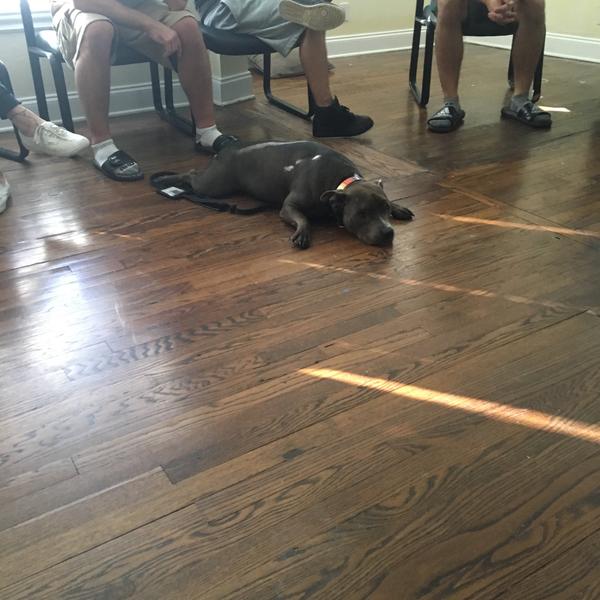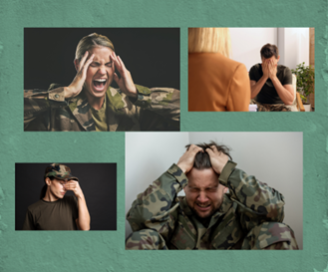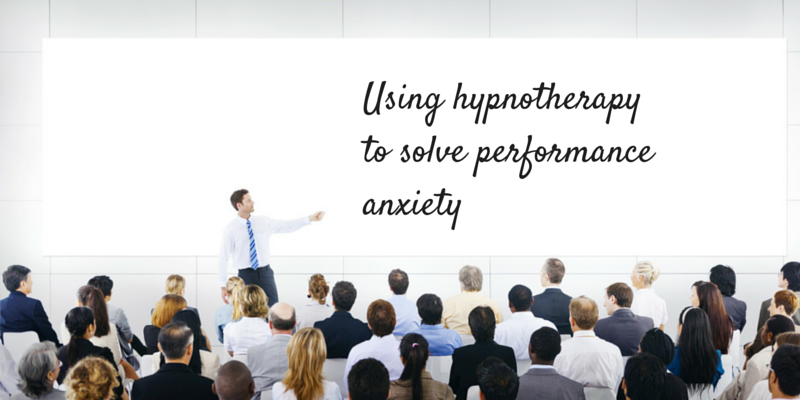How I Mix Therapy Styles to Help Clients Beat Depression

As a practicing mental health therapist, depression is one of the most persistent and debilitating challenges you face. It’s also one of the most common reasons clients seek you out.
The Anxiety and Depression Association of America says:
- Nearly 7 percent of all adult Americans have experienced a depressive episode in the past year.
- Depression is the leading cause of disability in Americans ages 15 to 44.
Your success as a therapist depends on finding ways to help your clients overcome their feelings of helplessness and hopelessness. When depression is at its worst, those dealing with it can hardly get through their day. They’re looking to you to help them regain their energy and motivation, to rebuild their relationships, and to get back to the activities that used to bring them joy.
In some cases, a client can feel like it would be easier to end their life than to deal with their depressed state. As a therapist, it is important to assess your client's risk for self harm or even suicide.
Fortunately, depression is treatable with the right style of therapy. But what is the right style of therapy?
The Combination Approach to Treating Depression
Any therapy style that helps your clients develop new skills for coping with depression is a good style.
In my practice, I’ve found that the most effective way of treating most mental health problems, particularly depression, is to use a combination of various styles and therapies, tailoring my approach to the particular client.
An Example of My Therapeutic Approach
 As a Heart-Centered Hypnotherapist, I might start with a client by providing psychoeducation on depression and the victim triangle. Then I might move on to pet therapy and spiritual therapy. I’ll then use Heart-Centered Hypnotherapy to dive deep and release the client’s shame and guilt at the source fracture.
As a Heart-Centered Hypnotherapist, I might start with a client by providing psychoeducation on depression and the victim triangle. Then I might move on to pet therapy and spiritual therapy. I’ll then use Heart-Centered Hypnotherapy to dive deep and release the client’s shame and guilt at the source fracture.
During hypnotherapy, the client will learn grounding techniques they can use the moment they step out of the office. I’ll teach them how to use anchors, putting their hands or fingers together in a certain mudra and go to a relaxing place in their subconscious mind.
Also, I often give therapy homework for the client to read their new affirmations and practice the new behaviors they learned through age regression. I may also do a bit of bibliotherapy, suggesting clients read “Breaking Free of the Victim Trap.”
But that’s me. You may find a different combination of approaches to treating depression works better for you and your clients. It all depends on:
- The treatments that interest you as a practitioner and on which you’ve trained.
- The needs of your particular client.
- The type and severity of your client’s depression. The fifth edition of the Diagnostic and Statistical Manual of Mental Disorders lists countless types of depression, including major depression, persistent depressive disorder, bipolar depression, seasonal affective disorder, situational depression, psychotic depressive disorder, postpartum depression, atypical depression, and premenstrual dysphoric disorder (which has been finally recognized). Each type may call for a different treatment approach.
Therapy Styles for Treating Depression
What are your options for tailoring a personalized treatment approach for a client struggling with depression? There are literally hundreds of therapy styles to choose from.
Browse the list of treatment types at GoodTherapy.org. It covers the alphabet from A to Y — and I’m sure a treatment starting with Z is coming soon.
Here are just a few styles therapists use to treat depression:
- Art therapy
- Bibliotherapy
- Cognitive behavioral therapy
- EMDR
- Hypnotherapy
- Interpersonal therapy
- Medication therapy
- Mindfulness therapy
- Music therapy
- Pet Therapy
- Psychodynamic therapy
Moving all the way down the alphabet, even yoga therapy can help people release the symptoms of depression.
For the remainder of this article, I’ll discuss some of the treatment styles I think are worth considering for clients struggling with depression. Some of them are tried and true and others are new and promising.
Electroconvulsive Therapy (ECT) and Repetitive Transcranial Magnetic Stimulation (rTMS)
When depression is due to a chemical imbalance in the brain, and when medication and talk therapy are not working, both electroconvulsive therapy(ECT) and repetitive transcranial magnetic stimulation (rTMS) can be effective.
Here is a summary of an interesting study comparing the two methods.
Spiritual Therapy
In recent years, a trend has emerged in which therapists explore their clients’ spiritual beliefs, examine their sense of meaning and purpose in life, and help them develop their spiritual connection. The objective is for patients to rely on this higher power/source for the inspiration that will empower them out of depression.
As they say in 12-step recovery programs, “Let go and let God.”
Spiritual therapy has led to great results for many people. I believe it is truly the number-one solution to letting go of depression. Research has shown that focusing on divinity has helped many people out of suffering.
Ho’oponopono
Another life changing-style I need to mention is one that uses the Ho’oponopono Hawaiian prayer. Therapists teach this simple mantra to their clients. Ho’oponopono stands for, “I’m sorry. Please forgive me. Thank you. I love you.”

Just saying these four phrases at times of struggle or judgment can free many of us. To learn more, read Joe Vitale’s book, “Zero Limits.”
Heart-Centered Therapy
Heart-Centered therapy styles emphasize that clients are 100 percent responsible for everything in their lives. Heart-Centered therapists awaken awareness in their clients that staying in depression means remaining in victim mode and not accepting responsibility.
With this therapy style, clients break free of codependency. They see how they have been fully responsible for what they have created in their lives and, therefore, have the power to create the solutions to their problems with depression.
Heart-Centered Hypnotherapy
In my experience, therapies that operate by connecting clients to their subconscious minds seem to be the most effective in the long term. For this, I turn to Heart-Centered Hypnotherapy.
In my practice, I use Heart-Centered Hypnotherapy to reduce or eliminate depressive symptoms and help people transcend to a higher level of consciousness and a state of peace in which they experience a psychic spiritual change.
Many Heart-Centered Hypnotherapists who have trained at the Wellness Institute in Issaquah, Washington., practice transpersonal psychology and incorporate other techniques into Heart-Centered Hypnotherapy.
Heart-Centered Hypnotherapy comprises the perfect recipe of:
- Neuro-linguistic programming
- Gestalt
- Symbology
- Music
- Archetypes
- Reframing
- Cognitive behavioral therapy
- Energy releasing
- Reclaiming one's power through hypnotherapy
How Heart-Centered Hypnotherapy Helps Clients Overcome Depression
Teri Bunetta, M.Ed.,LMHC is co-director of Florida Personal Growth Center, where she sees a variety of populations and works with several therapists in individual sessions and group sessions. She told me about the unique style of Heart-Centered Hypnotherapy she uses to treat clients with depression.
Bunetta teaches her clients loving kindness, compassion, and responsibility, and helps them learn how to transform out of their trauma, victim consciousness, despair, depression, and anxiety to a place of trust, forgiveness of self and others, clarity, direction, peace, and happiness.
Bunetta told me:
“With depression, it can be a slow process. But I also begin looking at the secondary gains of staying in the depression, such as clients who believe if they remain in their depression then their thinking is, ‘I don't have to do anything,’ ‘You won’t expect anything from me,’ and ‘I already decided this doesn't work.’ This way of operating helps convince people that they do not have to be responsible and then others often persecute them or try to rescue them.”
Bunneta explained how Heart-Centered Hypnotherapy differs from cognitive behavioral therapy: “CBT is like snorkeling on the surface and has its purpose in working with children or on a psychiatric unit.” Heart-Centered Hypnotherapy is more powerful and long lasting because “you are correcting it in the hard drive as opposed to the here and now,” she said.
If you are ready to learn more about using Heart-Centered Hypnotherapy to help your patients overcome depression, explore programs at the Wellness Institute.








